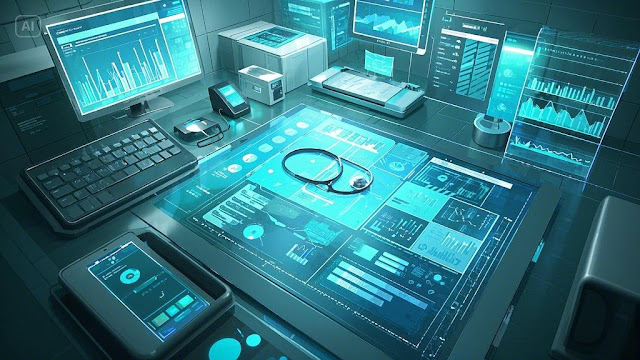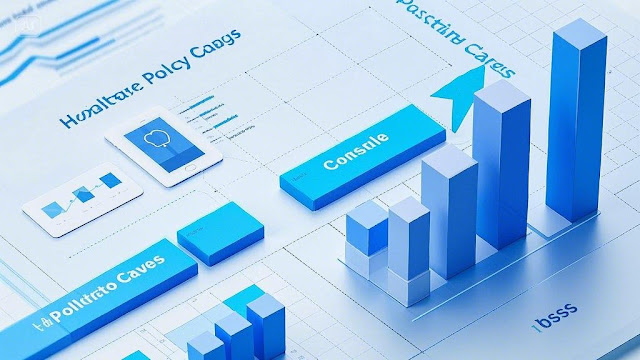Healthcare is evolving rapidly, driven by technological advancements, policy changes, and shifting consumer expectations. As we navigate 2024, several key trends are shaping the future of the healthcare industry. Here’s an in-depth look at these transformative developments:
1. Artificial Intelligence Healthcare(AI) Revolutionizing
AI is at the forefront of healthcare innovation. Its applications are diverse, ranging from enhancing diagnostic accuracy to personalizing treatment plans. AI's role in predictive analytics allows healthcare providers to anticipate patient needs and potential outbreaks, improving overall care delivery. Moreover, AI is vital in cybersecurity, helping healthcare institutions protect sensitive patient data from cyber threats.
%20Revolutionizing%20Healthcare.jpeg) |
| Health Care (AL) Revolutionizing |
2. Telemedicine and Virtual Care
The COVID-19 pandemic accelerated the adoption of telemedicine, and its benefits have ensured its continued use. Virtual care enables patients to consult healthcare professionals remotely, reducing the need for physical visits. Remote patient monitoring is another critical component, allowing continuous observation of patients’ health metrics, thus improving chronic disease management.
3. The Rise of Wearable Health Devices
Wearable health devices like smartwatches and fitness trackers are becoming increasingly popular for personal health monitoring. These devices provide real-time data on various health parameters, offering users insights into their health and prompting timely medical intervention when necessary. However, the challenge remains in integrating this data into clinical workflows to enhance patient care effectively.
4. Personalized Medicine
Advancements in genomics and biotechnology are ushering in an era of personalized medicine. This approach involves tailoring medical treatment to the individual characteristics of each patient, including their genetic makeup. Personalized medicine promises to improve treatment efficacy and reduce the risk of adverse effects, revolutionizing patient care.
5. Big Data and Analytics in Healthcare
Big data is transforming healthcare by enabling the analysis of vast amounts of information to identify trends and improve decision-making. Healthcare providers use data analytics to enhance patient outcomes, predict disease outbreaks, and streamline operations. This data-driven approach ensures more precise and effective healthcare delivery.
 |
| Big Data Analytic |
6. The Shift Toward Consumer-Centric Healthcare
Today’s patients are increasingly viewed as consumers, with healthcare providers focusing on offering services that are convenient, affordable, and tailored to individual needs. This shift has led to the development of more patient-friendly healthcare delivery models, emphasizing ease of access and personalized care experiences.
7. Policy Changes and Healthcare Costs
Healthcare policies are continuously evolving to address the growing concerns about costs and accessibility. Current discussions focus on managing prescription drug prices and refining the process of prior authorizations. These policy changes aim to make healthcare more affordable and accessible to the broader population.
 |
| Health Cost Analytic |
Conclusion
The healthcare industry is undergoing a significant transformation, influenced by technological innovations and changing patient expectations. From AI and telemedicine to personalized medicine and big data, these trends are reshaping how healthcare is delivered and experienced. As we move forward, staying informed and adaptable to these changes will be crucial for both healthcare providers and patients.






0 Comments